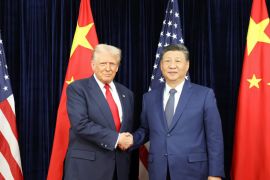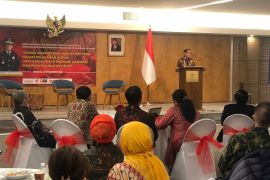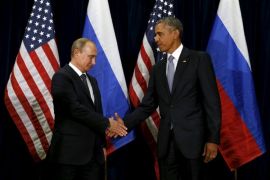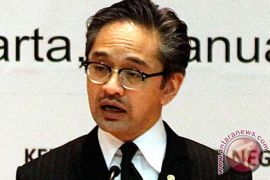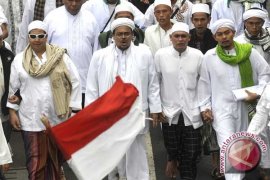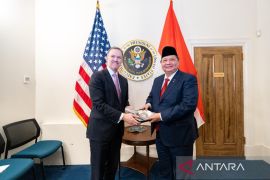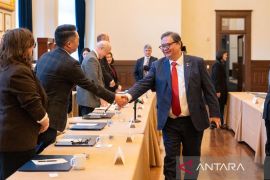The Armed Forces Day display by the fledgling 280,000-strong security force completely reformed after the US-led invasion of 2003, comes with a standoff between the Shiite-led government and the main Sunni-backed bloc, stoking sectarian tensions and minority warnings of politicisation of the military.
Heavy security measures were put in place for the parade, which was to be held entirely in Baghdad's tightly-secured Green Zone, with authorities not even officially confirming it would take place until Thursday.
Media covering the event had to pass through five checkpoints after gaining access to the Green Zone, home to parliament and the sprawling US embassy, with several roads leading to the area shut off entirely.
Inside, Iraqi flags of all sizes were on display throughout, as well as a large banner that read, "Side-by-side, to build and save Iraq".
Expected to be on shown off are several M1A1 Abrams tanks purchased from the United States as part of a wide-ranging equipment acquisition programme, as well as helicopters and other aircraft.
The parade comes a day after bomb attacks targeting Shiites in Baghdad and southern Iraq killed 68 people, dealing a blow to US and Iraqi claims that domestic forces are able to maintain internal security.
Officials openly acknowledge, however, that Iraq`s security forces cannot yet defend the country`s borders, air space or territorial waters.
US forces dismantled the Iraqi army after toppling Saddam Hussein in 2003 in a move later panned for having put hundreds of thousands of men with military training out of work and created a potent recruitment pool for insurgents.
That insurgency, though much weaker than in 2006 and 2007 when Iraq was in the throes of sectarian war, remains active, with 458 Iraqi soldiers dying in violence in 2011, and 1,093 being wounded, according to official figures.
Friday's parade marks the first Armed Forces Day since the December 18 withdrawal of US forces from Iraq, a country where there once nearly 170,000 American troops on 505 bases.
The celebration comes with Iraq mired in political crisis, albeit one that appears to be easing with several leaders softening their rhetoric in recent days.
The row was sparked by an arrest warrant issued for Sunni Vice President Tareq al-Hashemi on charges he ran a death squad.
Hashemi, who is holed up in the northern autonomous Kurdish region, denies the accusations, and his Iraqiya party has boycotted the cabinet and stayed away when parliament reopened on Tuesday. (D017)
Editor: Ade P Marboen
Copyright © ANTARA 2012

